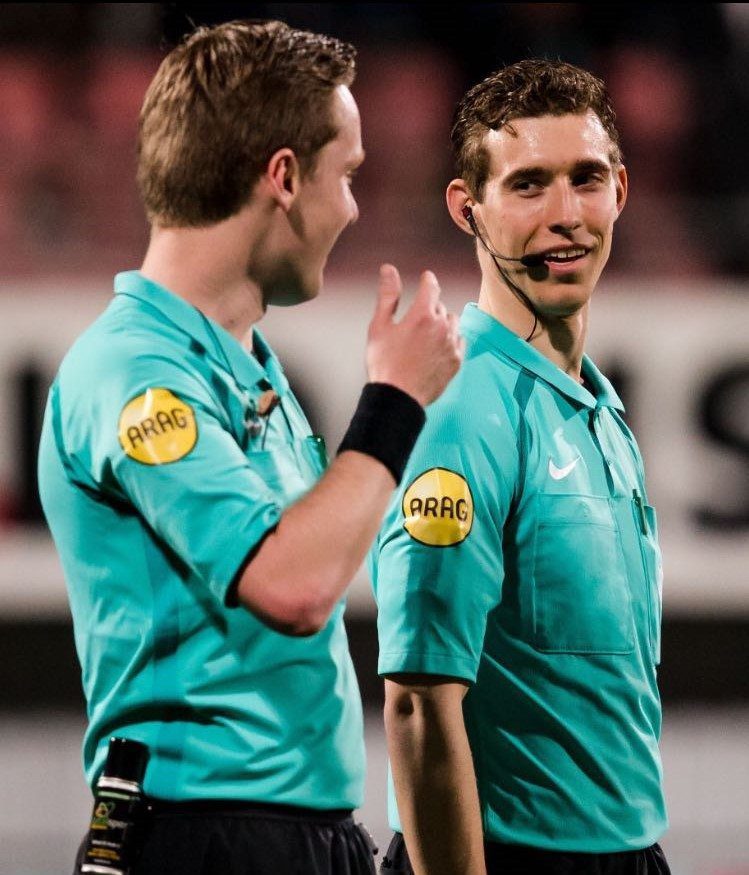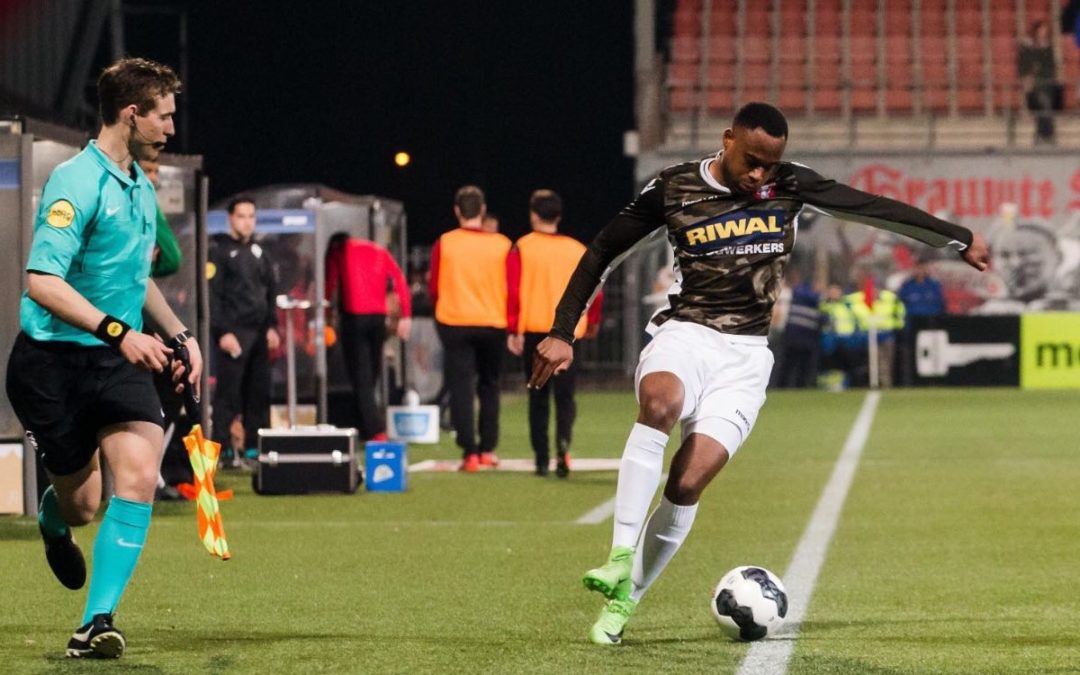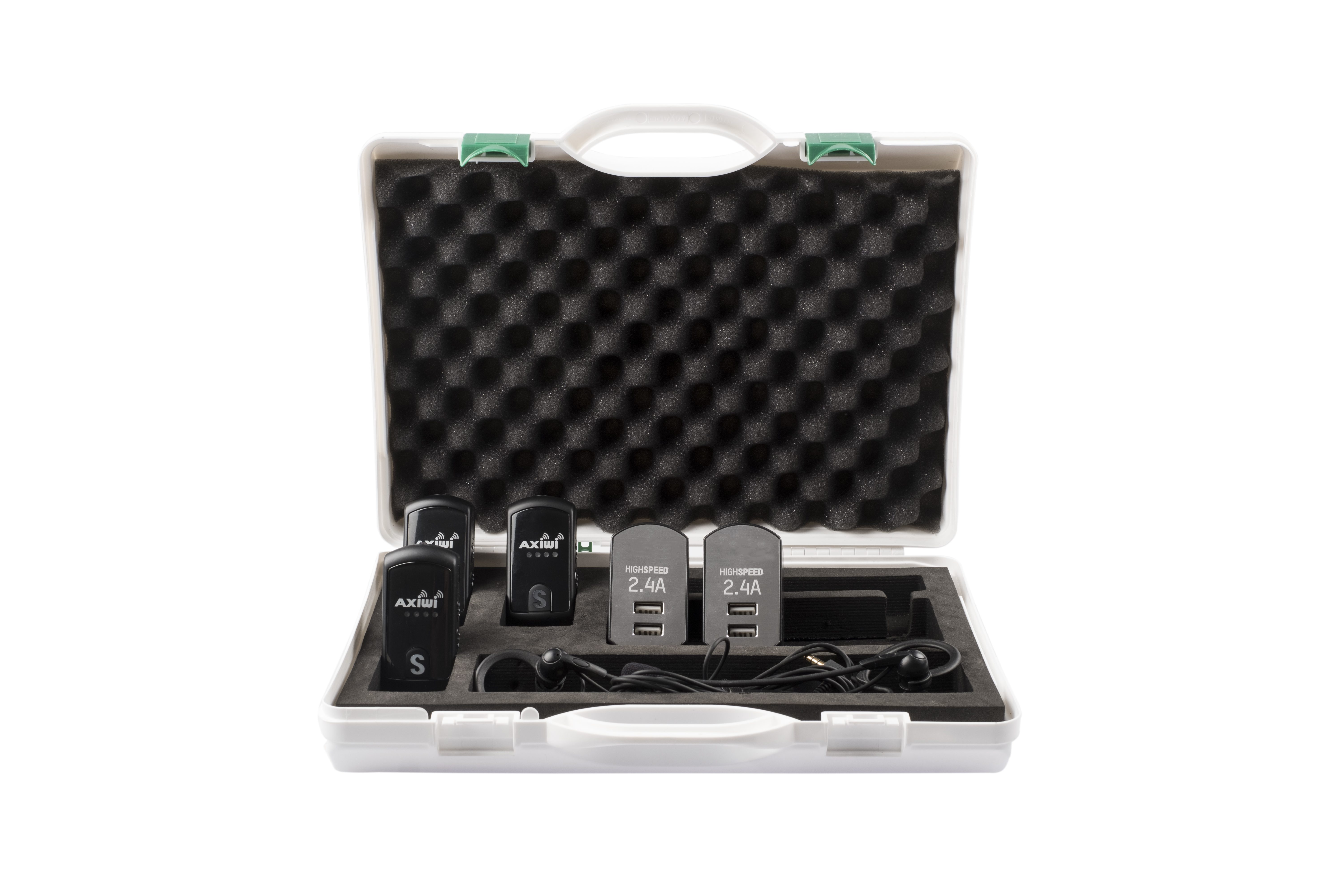My name is Michael Osseweijer, 25 years old and an active assistant Referee at the KNVB. As part of a refereeing team, communication is vital to taking the necessary and the right decisions. People expect the decision to be fast, clear and correct. To assist us during our matches, we use a few helpful technological tools. These are the beeper flags and the headset communication system. With these, we are constantly in contact with all members of our team and able to communicate about all crucial decisions during a match. The headset has become our number one communication tool in professional refereeing and over the years, the efficiency of the system has become better and better.

In this blog I will try to give you some tips and trick for using a communication system in an efficient and effective way, improving your performance during the game.
1. Clear agreements
When refereeing a soccer match on the highest level, the team usually consists of at least four people. Between the four, clear agreements need to be made to ensure good communication during a match. Four people speaking at the same time will not help, thus responsibilities need to be given to each member of the team. Where to speak and where to be quiet. Make agreements on the important things that need to be said during a match. How to act when a foul occurs, off-side, corner kicks or any other expected standard situation on which you can already prepare yourself. Make agreements on the used terminology and avoid confusing terms.
2. Less is More
Only use the headset to communicate information that is vital to the match. As a referee you can filter a lot of non-sense during a match, but the less you have to filter, the higher your concentration will be. Avoid saying things that are not important to say. For example, you can say that the game can go on because there was no foul play a 100 times during a match if you want. But the only thing that a referee would like to hear is the three times you actually think that there is actually a foul.
3. Stay calm
Do not scream, do not keep repeating and do not use long and complicated sentences. Calmness is one of the most important things when using headset communication. You will be easy to understand if you say things once, on a normal volume and using short and clear words. If your message is not heard, you repeat it once until you have gotten confirmation from someone in the team.
4. Only say what is happening
This seems very obvious, but a common rooky mistake is to talk about things that did NOT happen. No off-side, no foul, no penalty, no handball etc. Imagine yourself running across the field hearing: ‘…. Penalty!’ or ‘…. Off-side!’. What would you probably do when you are refereeing this game. Only use the words foul, off-side, penalty etc. when you are actually advising these things. If not, and you still want to communicate something, use thing like: ‘good’, ‘nothing’ or ‘play on / go on’. But as mentioned in point 2, use these terms not too often, but only when a referee might be in doubt. Then this is helpfull input.
5. Feedback and confirmation
It is nice to get feedback and confirmation during a match. If you give an advice, and a referee is not following it, you should at least receive feedback to know that he heard you and is not following it. The other way around works the same way. When the referee is shifting responsibility to you, because you are closer to a situation, confirm to him that you take the responsibility and also verbally give it back when it’s out of your zone again. Besides that it is also important to stay positive and help each other during a match. Help your team where you can, look at places they can’t and be their eyes and ears when they are busy with something else. You have to do it together.
Wireless referee communication system
In sports having 2 or more referees during a match is an increasing trend, even if the matches are non-professional. To make communication between referees more effective we introduced the wireless and handsfree AXIWI Referee communication system. And the communications system is very affordable: similar referee communication systems are 5 to 6 times as expensive. In the mean time our AXIWI system is succesfully being used in sports like handball, korfball, basketball, soccer, fieldhockey, volleyball, baseball, water polo, rugby, Ice hockey, floorball, Segway Polo and Lacrosse. Click here for a total view with all the sports and possibilities.




